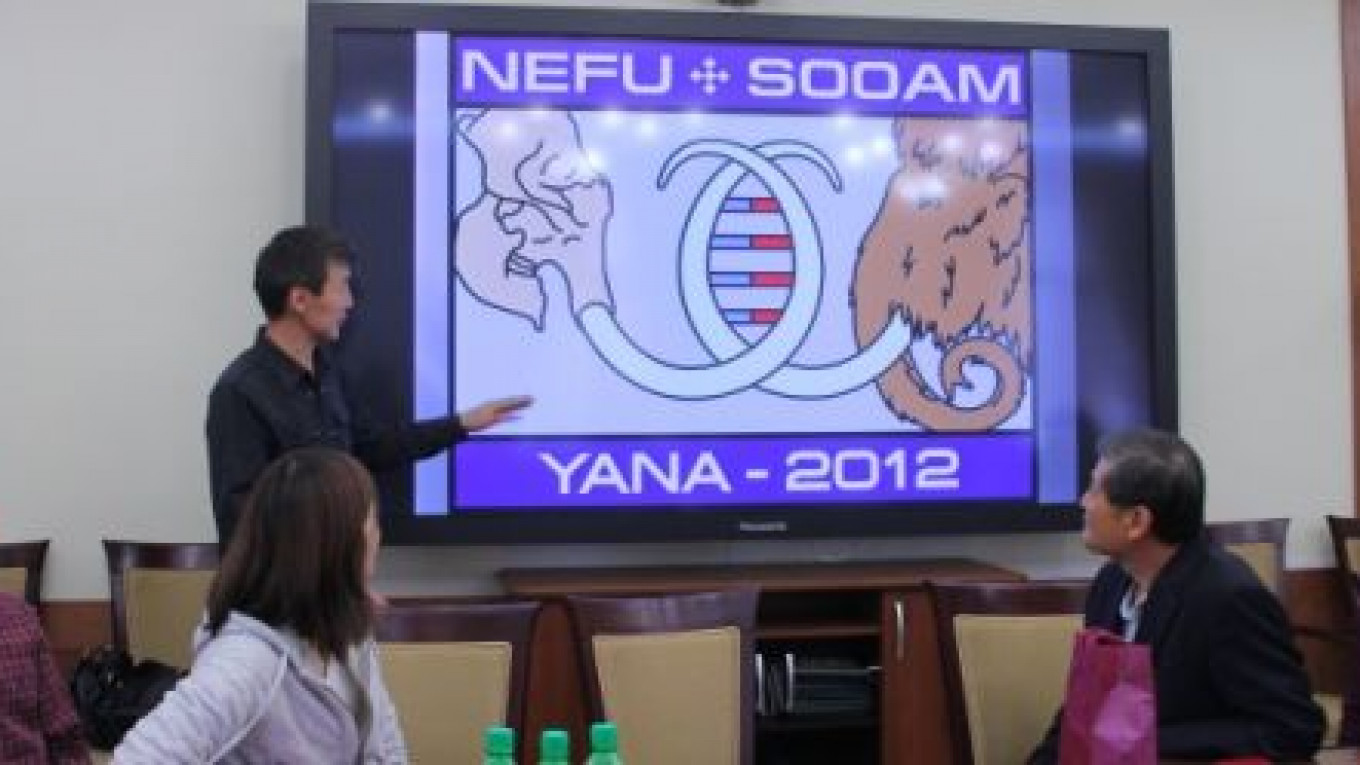A team of paleontologists said they have found “living” mammoth cells in remains discovered in the Far East that could be used to clone the ancient mammal.
But some scientists expressed skepticism regarding the find, saying they doubted living cells had been found and questioned why such a significant discovery had not been announced in a scientific journal.
A hundred meters under the permafrost in the Ust-Yansky district of Sakha, an international expedition called Yana-2012 found soft tissue, fatty tissue, fur and bone marrow of mammoths, expedition leader and Northeast Federal University researcher Semyon Grigoryev said Friday, according to a news report posted on the university's website.
Head of the Korean Sooam Biotech fund Huang Vu-Souk said the ?€?living?€? cells that were found could be used for cloning, the news report said. An unidentified member of the expedition team said findings from the expedition would be published in authoritative scientific journals.
A scientist from the Institute of Paleontology at the Russian Academy of Sciences said he doubted that living cells, which he described as emitting carbon dioxide and processing nutrients, had been found so deep in the permafrost.
?€?Thus far there haven't been truly living cells in any of the mammoths [found] — a complete DNA sequence has not even been able to be obtained,?€? head of the mammals laboratory at the Institute of Paleontology Alexander Agadzhanyan told RIA-Novosti.
Agadzhanyan's colleague at the Institute of Paleontology Alexander Markov told the news agency that in serious scientific practice, such major discoveries are announced not in the media but in research journals.
Northeast Federal University is studying the genome of ancient animals under an agreement signed earlier this year with the South Korean Center for Biotechnical Research. One of the project's central tasks is cloning a mammoth.
Remains of mammoths, which went extinct about 4,500 years ago, are occasionally found in the permafrost of Russia's northern regions.
Earlier this year, a team of Russian scientists led by a researcher from the Russian Academy of Sciences conducted a groundbreaking experiment in which they produced an entire plant from fruit tissues found in the permafrost. The scientists said the experiment opened the door to the resurrection of other ancient species.
Related articles:
A Message from The Moscow Times:
Dear readers,
We are facing unprecedented challenges. Russia's Prosecutor General's Office has designated The Moscow Times as an "undesirable" organization, criminalizing our work and putting our staff at risk of prosecution. This follows our earlier unjust labeling as a "foreign agent."
These actions are direct attempts to silence independent journalism in Russia. The authorities claim our work "discredits the decisions of the Russian leadership." We see things differently: we strive to provide accurate, unbiased reporting on Russia.
We, the journalists of The Moscow Times, refuse to be silenced. But to continue our work, we need your help.
Your support, no matter how small, makes a world of difference. If you can, please support us monthly starting from just $2. It's quick to set up, and every contribution makes a significant impact.
By supporting The Moscow Times, you're defending open, independent journalism in the face of repression. Thank you for standing with us.
Remind me later.


